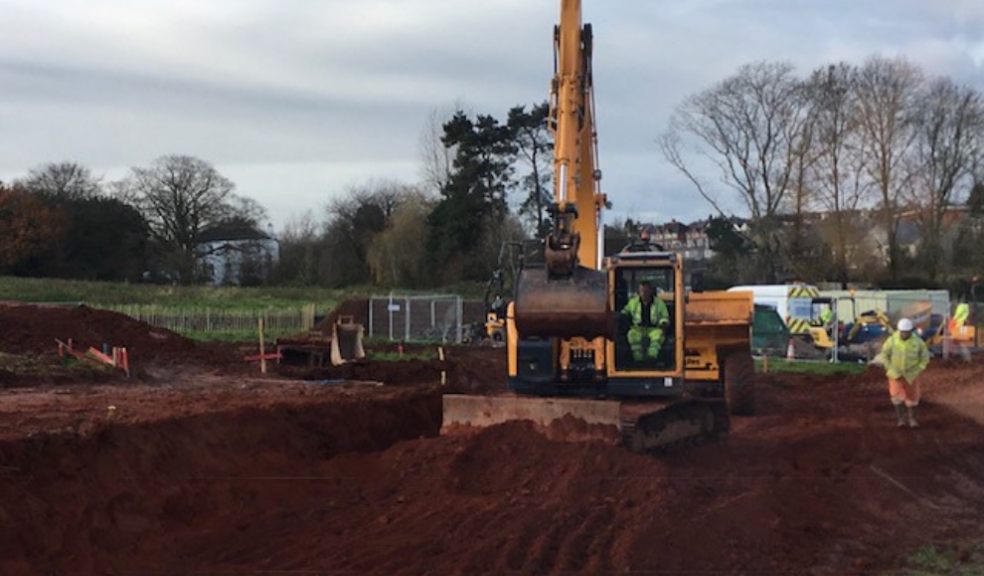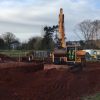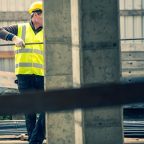
Must Have Construction Equipment for your Next Real Estate Project
Construction projects on home renovations, new housing developments, retail builds, warehouses and other real estate ventures share a common need - having the correct equipment. For large-scale projects especially, access to machinery for digging, lifting, power generation, concrete work and more is mandatory.
However, construction equipment represents a major capital expenditure. It's essential to strategically select equipment tailored for each unique project. Both renting and buying new or used equipment have their advantages depending on needs. With smart planning, you can access the necessary machines for your crews without overspending.
This guide will walk through must-have equipment types for all standard real estate projects, from single family homes to commercial buildings. For each machine, I’ll overview key selection criteria, pros and cons of renting vs buying, and where to source equipment at the best value. Let's explore how to plan your equipment needs!
Excavators
No major construction project starts without using an excavator for digging foundations, trenches, and more earthmoving tasks. These versatile machines feature buckets and hydraulic arms to dig and lift soil efficiently.
For small residential jobs, a mini or compact excavator is ideal. Larger commercial projects require standard or heavy excavators. Key features to look for include digging depth, lifting capacity, stability, and breakout force.
Excavators are costly machines - renting is typically the best option unless you frequently undertake large projects justifying the expense of ownership. Compare rental rates and availability when planning your project timeline.
Loaders
Front end loaders are another go-to machine on real estate job sites. Their large front buckets adeptly scoop, lift and move dirt, gravel, demolition debris and construction materials around the work area.
Skid steers are compact loaders suited for accessing tight spaces and smaller loads. Larger standard or telescopic wheel loaders have greater lifting capacity for intensive earthmoving. Select loaders based on project scale.
As with excavators, the cost of loaders makes renting the preferred choice for smaller contractors. Loaders rented by the week or month offer affordable access to loading capabilities when required. Coordinate rentals in advance to avoid project delays.
Forklifts
Forklifts play an indispensable role on construction sites for lifting and moving heavy materials through their hydraulic fork apparatus. With the ability to access heights and tight spaces, forklifts safely transport items exactly where needed.
The two main forklift varieties used in construction are rough terrain and all-terrain models. Rough terrain forklifts are rugged to handle outdoor job conditions, while all-terrain forklifts are highly maneuverable. Choose lift capacity sufficient for your project.
Forklifts provide great utility at relatively affordable rental rates. Renting for limited durations aligns with most project timelines. Ensure operators are properly licensed and trained for safety.
Telescopic Boom Lifts
For real estate projects involving a structure taller than a few stories, a telescopic boom lift (or telehandler) becomes essential for lifting workers, materials, and tools to upper levels safely. Their extendable arms reach both vertically and horizontally for maximum positioning flexibility.
Boom lifts boost workforce productivity and reduce injury risks from strenuous overhead work. Different models provide varied height reach, load capacity and terrain capabilities. Larger projects will require more heavy-duty options.
The specialty nature of boom lifts lends itself well to renting for the duration needed. However, frequent high-rise contractors may consider purchasing for convenience and cost savings. Compare new, used, and rental equipment when selecting telehandlers. You can buy used telescopic handlers at: https://www.mascus.co.uk/construction/telescopic-handlers
Generators
A super-must have on any real estate construction project is an industrial generator (or multiple units). With no power lines connected early on, generators supply the electricity needed to operate tools, lighting, equipment and more.
Stationary generators are suitable for long-term job sites. More portable units like trailers offer mobility between multiple locations. Determine required power output, runtime, and features like voltage regulation. Include plenty of fuel for continual operation.
Owning industrial generators allows convenient access with no rental logistics. However, infrequent users are better off renting generators only when required to avoid ownership costs during downtime.
Concrete Mixers
For pouring concrete foundations, walls, and slabs on residential or commercial projects, having reliable concrete mixing equipment is a must. Concrete mixers blend gravel, sand, cement, and water into ready-to-pour concrete.
Contractors choose between portable mixers loaded onto trailers for mobility, higher-capacity self-loading models, and drum mixers with efficient rotating drums. Consider mixer size, discharge method and ease of cleaning when selecting equipment.
Owning mixers outright makes sense for concrete contractors regularly batching concrete. Others can rent mixer equipment as needed for each project to avoid idle assets between jobs. Just confirm availability well in advance of pour dates
Conclusion
Taking on a major real estate construction project means investing in the right heavy equipment suited for each job. Excavators, loaders, telehandlers, generators, concrete mixers and more enable you to deliver maximum productivity and quality craftsmanship.
With the proper machinery ready for your crews' use, you can tackle residential, commercial, or industrial builds with confidence. Your real estate projects will be completed on-time, on-budget and most importantly, safely. Here's to successful construction with the best equipment on your side!

















